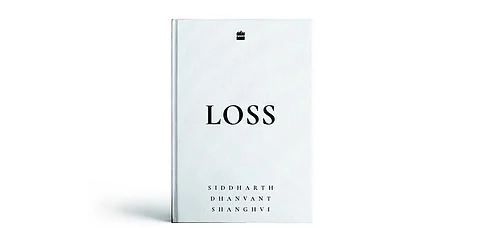
- Destinations
- Experiences
- Stay
- What's new
- Celebrating People
- Responsible Tourism
- CampaignsCampaigns
- SubscribeSubscribe
- Buy Now

What does it mean to lose someone Bestselling author Siddharth Dhanvant Shanghvi draws on a string of devastating personal losses&mdashof his mother, of his father and of his beloved dog Bruschetta&mdashto answer this timeless question in his first non-fiction book, Loss. Shanghvi&rsquos first novel, The Last Song of Dusk, won the Betty Trask Award, the Premio Grinzane Cavour, and was nominated for the IMPAC Prize. His second book, The Lost Flamingoes of Bombay, was shortlisted for the Man Asian Prize. His most recent book is The Rabbit & the Squirrel (with illustrations by Stina Wirsen). He lives in north Goa.
Was Loss a difficult book for you to write
If a book is easy to write, I would not write it. A difficult book makes a better writer. I wrote the first essay, on losing my father, in a day I remained with that piece for a year before I began to elaborate on that original draft. Time gave me space to revisit the difficult, the messy, and while time does not heal, it certainly gives pause. On another note, I wish there were more state and private sponsored residencies for younger writers to develop their work. Perhaps hotels should consider to host a &lsquowriter-in-residence&rsquo through their off season&mdashmeaningful partnerships could emerge. The Neemrana Group had graciously hosted my stay at Barr House, Matheran where I wrote a part of The Lost Flamingoes of Bombay.
Loss is many books in one. It&rsquos about death and, of course, life. It&rsquos about the nature of memory. It&rsquos about narration and storytelling. Thoughts
I want this book to be what it is for you&mdashI wouldn&rsquot dare interfere with the privacy of your relationship with Loss. I wrote Loss as a community book, something we might read to air out the grief. Unlike a novel, which deepens interiority, a book of non-fiction might mirror the reader&rsquos own condition. They might, for instance, see that redemption is not suffering&rsquos destination rather, the two run parallel. In India, at the time of death, ritual triumphs experience&mdashwhen we lose someone we are worrying over where to host the chautha, or the relatives who didn&rsquot show up, instead of being mindful of this great cosmic event of final departure.
Loss illustrates how widely and deeply you&rsquove read. Did you also read specifically for the book
I am ashamed to admit I had come to think of reading as dull or difficult&mdashI simply didn&rsquot have the stamina of concentration of my younger days. The pandemic made me a reader again, and some of that may have found itself back to Loss. I tried very hard&mdashunder instruction from my nephews&mdashto watch Netflix but I saw only Tiger King, and that was quite enough. I&rsquom presently reading James Salter, Curtis Sittenfeld and Banana Yoshimoto, and it feels like I am in love.
This is a book of dog love as well...
I spent my pandemic with Kora and Lila, proof that extraordinarily good company doesn&rsquot rely on language&mdashin that, they might be the opposite of a book, which also serves a similar purpose. Bruschetta&mdashsubject of the third essay in Loss&mdashwas an excellent friend, her enthusiasm for the everyday signalled her acute sophistication. No one tells you losing a dog will mean the light in your world will dim forever. I honestly don&rsquot understand the folks who take selfies with people at restaurants when they probably hate their squad or gang or whatever. The only honest friend is a dog, and people should only ever take pictures with them. If you don&rsquot have a dog and are thinking of getting one, visit your local shelter today. Wagoa.com is a wonderful animal rescue in north Goa.
